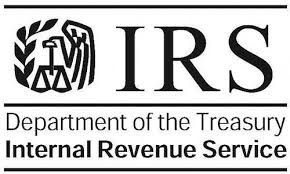About six weeks ago in late October, I filed two late IRS annual tax-exempt filings, for 2020 and 2021, for a tiny local 501(c )(3) client that had minimal operations, no employees, no accounting system, no records of board of directors proceedings, no professional bookkeeper or controller engagement. I took on the work because it was related to a revenue application opportunity that required additional state licensing issue. This week IRS sent late filing penalties this week totaling over $2,000. This is the first time I’ve seen this in 35+ years of practice, so it took us both by surprise.
Of course the penalties can be appealed and will likely be dismissed. But for a tiny charity that could not afford an accountant in the first place, they also cannot afford to hire help for this problem. From a purely financial perspective, it is cheaper to pay penalties than hire or train to do things correctly. That’s a sad scenario.
It is expensive to properly run a nonprofit organization and most do not budget sufficiently for this cost. We see operational and compliance costs in this niche escalating faster than inflation in other sectors. Cost escalation is not just for government compliance, Costs are rapidly rising for necessary software
, contractors, and other support expenses.When I started in this profession decades ago, we used a ‘rule of thumb’ that administrative expenses like accounting and compliance should be kept under 4% of related gross revenue. I don’t know any nonprofits that even come close today. For a million dollar nonprofit, we have a fighting chance if we set a $40,00 accounting and compliance budget. But for a $100,000 revenue nonprofit, it cannot be done for $4,000 by even the lowest priced service providers.
This year the larger issue for me is that I’ve had to leave a bunch of smaller nonprofits I love with lower revenues who just couldn’t afford the minimal costs of having me continue to help. It requires just as much attention to support an organization with with minimal revenues as one with millions of dollars. The systems and requirements are mostly the same. My observation is that most nonprofits have significant operational and financial deficiencies, regardless of their size. The difference is in their ability to address those issues once identified. If IRS and state regulators are cracking down as they said they are going to do, then how should these smaller nonprofits react?
By coincidence, I am already working on an article for another publisher on this related topic of options for small entities, both nonprofit and for profit, who can not keep up with excavating compliance costs. The core of the article encourages a shift from hiring for accounting to focus on bringing in coaching and training. Still, this is a significant budget item.
I am reminded of a court appearance I made for a small local New Jersey nonprofit some years ago before an unsympathetic New Jersey administrative court judge in Trenton. The issue was a late filing of a state business license renewal in the aftermath of superstorm Sandy. He basically said that if current management can’t keep up with payments and paperwork, get rid of them or shut down the organization. I do not agree. But I don’t have a better answer for these small community organizations.

Leave a Reply